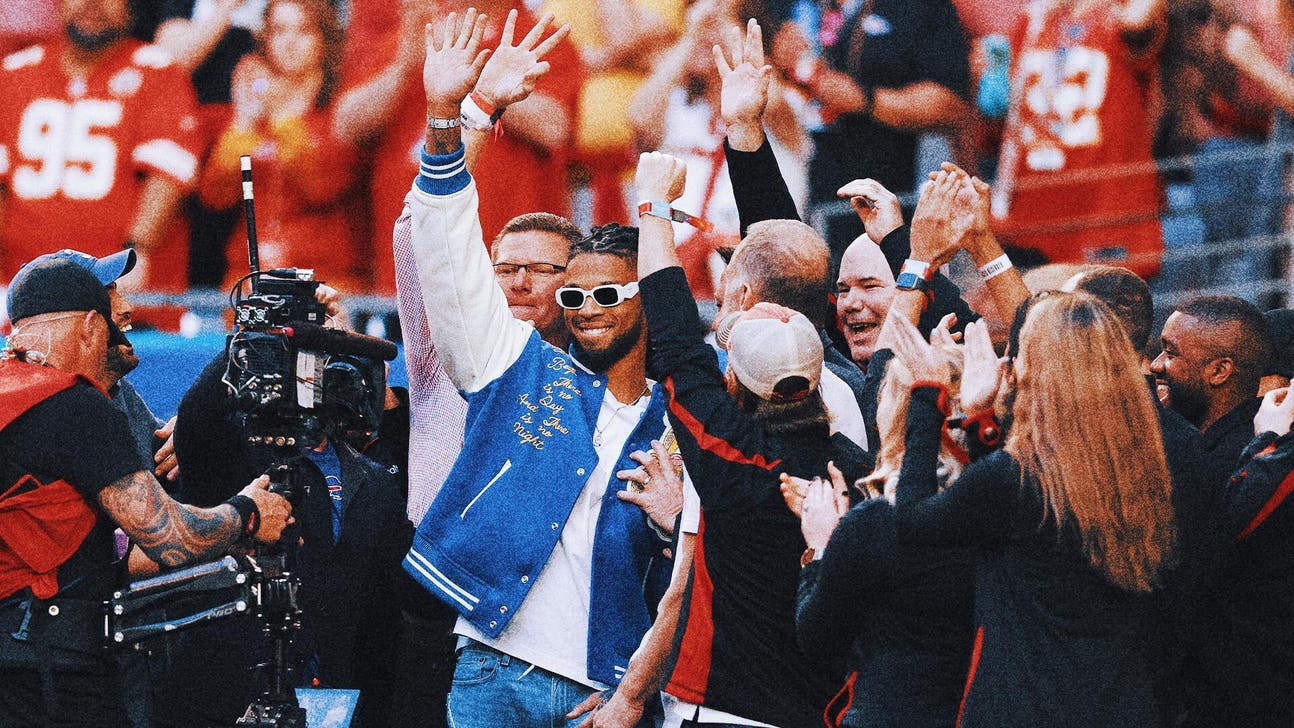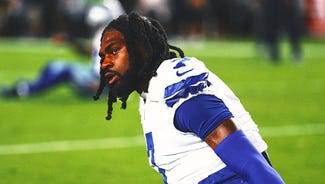
Bills trainers cite Hamlin as example, youth leagues to make life-saving plans
When Buffalo Bills trainers Nate Breske and Denny Kellington rushed onto the field following Damar Hamlin's collapse in January, they stuck to the plan — right down to positioning Hamlin’s teammates to shield the television cameras.
Their quick actions saved Hamlin’s life. Now they’re trying save others.
On Thursday, Breske and Kellington told a convention of athletic trainers in Indianapolis that pre-planning and regular practices helped prepare them for a worst-case scenario, and they’re urging schools and youth leagues to start creating their own emergency action plans.
"First up, I don’t think anything can prepare you for what we went through in that moment," Breske said. "It was the first time we had seen it on a live human, but we had practiced it. We had done chest compressions before, we had done things with our paramedics and the other physicians, so we were ready, and everyone knew their role and what needed to happen in that moment."
The story of what happened has been retold many times over the past six months.
Hamlin, the former University of Pittsburgh star, went from sixth-round draft pick in 2021 to starter last season when veteran Micah Hyde suffered a neck injury in Week 3. Hamlin became a household name when he went into cardiac arrest after making a routine tackle during an NFL game at Cincinnati on Jan. 2.
Breske and Kellington helped resuscitate Hamlin with CPR and an automated external defibrillator before an ambulance took Hamlin to the University of Cincinnati Medical Center. One week later, he flew home to western New York.
Hamlin was cleared to resume full practices May 31 and is now using his charity, the Chasing M’s Foundation, to distribute AEDs (automated external defibrillators) while amplifying the significance of CPR training.
In April, Hamlin’s doctors concluded a hit to the chest caused his heart to stop because of a rare condition — commotio cordis, which occurs when a severe blow to the chest causes the heart to quiver and stop pumping blood efficiently.
He was fortunate because NFL teams invest heavily in medical equipment and staffing.
But in recreation and youth leagues and even high school and middle schools, employing trainers or buying machines such as AEDs can prove unaffordable.
According to the National Athletic Trainers Association (NATA), only 37% of America’s public high schools have full access to athletic trainers despite statistics showing 93.4% of sports-related deaths in children are caused by sudden cardiac arrest, exertional heat stroke or exertional sickling, which can occur in people who carry the sickle cell trait.
Breske, Kellington, Hamlin and others want to change those numbers.
"There needs to be trainers out there," Kellington said. "I know cost is one thing and communities don’t have the money to do it, but what’s the cost of a life? How can you not have somebody there? If that’s your child and something happens and there’s nobody there to help, how upset would you be just for lack of funding or lack of knowledge?"
State lawmakers also are getting involved.
In 2022, the Sudden Cardiac Arrest Foundation reported 40 states required CPR training for all students before graduation while only 20 states and the District of Columbia required AEDs to be in schools. California also mandates schools with sports teams must have AEDs on school grounds.
Hamlin’s experience put a spotlight on the issue.
Since then, a coalition of the NFL, NBA, NCAA, NHL, MLS, MLB, NATA, American Heart Association and American Red Cross are lobbying to make emergency action plans, CPR and AED education for coaches and clearly marked defibrillators mandatory in all 50 states.
Last week, the Ohio House of Representatives approved legislation that would require AEDs to be available at nearly every school or sports and recreation venue in the state.
And to help defray the costs, the NFL Foundation has pledged $1 million in grant money.
"Teachers have tended to be taught CPR and how to use an AED in 10 minutes," Breske said. "You don’t have to be certified to do it. It’s awareness of what’s going on, it’s a 911 call, doing chest compressions and getting the AED in place."
Without those tools and the trainers’ actions, Hamlin’s return to the playing field might not have been possible, and Breske and Kellington know it.
So they’re mission now is to use their platform to inform, educate and push for changes to make the sports world safer at all levels of competition.
"Throughout these last few months, people ask ’Don’t you have to be certified to do CPR or to use an AED? That’s not the case," Kellington said.
"Bystander CPR is a great way to save somebody’s life. And, as I said earlier, the machine tells you what to do. The lack of not doing something is what puts kids in jeopardy. I think we all should take a look around and see what we’re all doing."
Reporting by The Associated Press.










